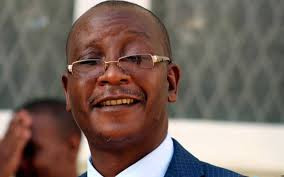
In recent days, we — persons with disabilities in Zimbabwe — have watched with deep disappointment and a growing sense of betrayal as your interventions in the Persons with Disabilities Bill have unfolded. We feel shortchanged. We feel dismissed. We feel undermined.
You may be under the impression that persons with disabilities are arrogant or ungrateful in their response. Let me assure you, that is far from the truth. We are deeply disheartened — not by political gamesmanship or disagreement over minor details, but by the blatant disregard of our voices and lived realities. How can one man — no matter how senior — disregard the collective will expressed in 10 provincial consultative meetings across the country? How can your version of the Bill differ so drastically from the report on the findings of Parliament?
Your approach does not merely contradict the democratic spirit of inclusive lawmaking — it violates a binding international obligation. Article 4(3) of the United Nations Convention on the Rights of Persons with Disabilities (UNCRPD), which Zimbabwe ratified, explicitly states that: States parties shall closely consult with and actively involve persons with disabilities, including children with disabilities, through their representative organisations, in the development and implementation of legislation and policies concerning issues relating to persons with disabilities. Honourable minister, you do not have the legal or moral latitude to override the views of persons with disabilities. Their voices are not optional. They are foundational.
On April 1, in your presentation to Parliament, you made a startling assertion: that some individuals are “angling to be on the commission,” and that this suspicion informed your decision to retain a board instead. This raises an uncomfortable question, Honourable minister: Were you trying to spite those you suspected of having ambitions, even at the cost of undermining the rights and dignity of millions of persons with disabilities? If so, that would be an alarmingly and profoundly inappropriate use of your office. And in any case, individual ambition — perceived or real — cannot be allowed to derail a national and internationally mandated process.
In reverting to a structure similar to the outdated 1992 Disabled Persons Act, your proposal effectively regurgitates a past we are trying to move away from. With respect, honourable minister, your comments and your actions have unintentionally conveyed a dangerous message: that the government of Zimbabwe is not prepared to move even an inch towards real progress on disability rights.
Let us be clear: this Bill is not a routine policy document. It is intended to domesticate the UNCRPD. Article 33 of the convention is unequivocal about the need for an independent national monitoring mechanism. The board you propose — rooted in outdated medical and rehabilitation models of disability — simply cannot satisfy that requirement. You cannot pour new wine into old wineskins.
Moreover, the Bill in its current form is heavy on rhetoric but hollow in substance. It is adorned with flowery language but starved of real mechanisms that guarantee social, political, economic and civil rights for persons with disabilities. It continues to silo disability as a social welfare issue under one ministry, rather than recognising it as a cross-cutting human rights concern.
Zimbabwe was once a giant in the disability rights movement. We were among the first African nations to legislate for disability with the 1992 Act. We gave the world formidable figures like the late Joshua Malinga, the late Alexander Phiri and the esteemed Senator Ishmael Zhou — towering voices in the global disability movement. And yet now, we stand at the brink of passing a law that will render us a laughingstock on the international stage.
- Mavhunga puts DeMbare into Chibuku quarterfinals
- Bulls to charge into Zimbabwe gold stocks
- Ndiraya concerned as goals dry up
- Letters: How solar power is transforming African farms
Keep Reading
We will not accept a Bill that represents regression dressed up as reform. We will not accept tokenism in place of transformation. We will not accept a future where the aspirations of millions of Zimbabweans with disabilities are buried under the rubble of outdated thinking.
Honourable minister, I urge you — in the name of justice, dignity and progress — to withdraw your current proposal and bring forth a Bill that reflects international best practice and aligns with both the spirit and letter of UNCRPD.
Our future cannot be built on the relics of the past.
- Abraham Mateta is a disability rights activist, lawyer and acting director of the African Union of the Blind, an umbrella body of organisations of blind and partially sighted people in all African countries.










